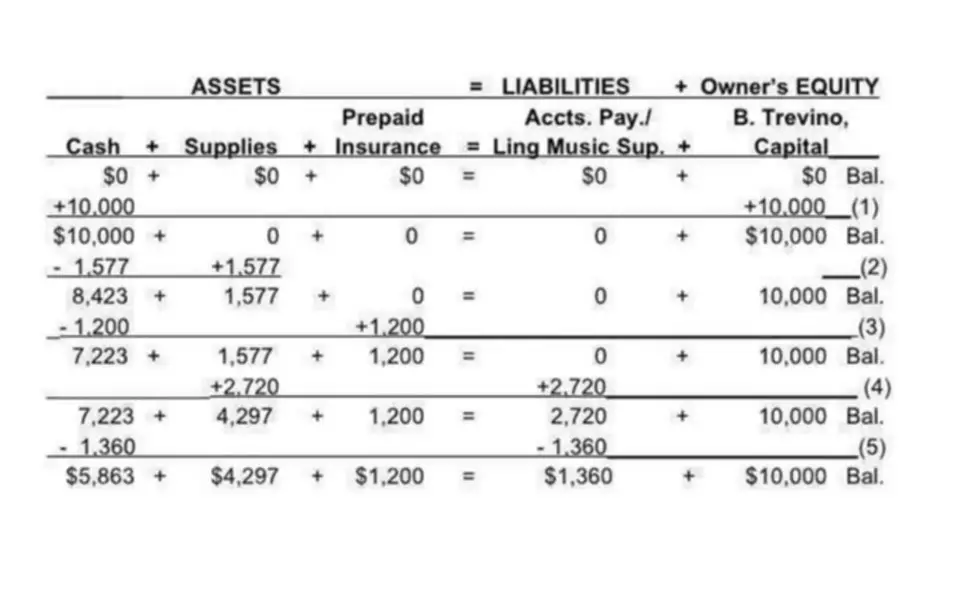Operating vs Capital Leasing: The Difference Between Each and How to Choose Between the Two
Content

Leases classified as ‘finance’ are counted as debt in a lessor’s finances, and are treated like assets on a company’s balance sheet. This means that they depreciate and incur interest over time. In the operating lease scenario, the lease expense is constant throughout the lease term. This last quantity is a plug to get our debits and credits equal, and these amounts will sum up to the lease liability balance over the lease term. For accounting purposes, a capital lease (sometimes called a “finance lease”) is reflected on the company’s balance sheet as an asset, with a value determined by the regulations for setting a cost basis for the asset. It’s not uncommon for a capital lease payment to be more expensive than an operating lease payment. However, if there’s a transfer of ownership agreement in place from the beginning, the rental price may be higher than a normal rental agreement.

No asset or liability is involved, just a monthly expense for the lease payments. When you rent an apartment or house to live in, it is an operating lease. Because a capital lease is a financing arrangement, a company must break down its periodic lease payments into an interest expense based on the company’s applicable interest rate and depreciation expense. The FASB and the IASB have proposed some changes to lease accounting rules that would virtually eliminate operating lease accounting treatment for all companies that lease real estate. The changes, proposed in 2012, are expected to take effect in 2015. The proposed standards will require assets and liabilities to be reported related to the lease. To that extent, the leases will be similar to capital or finance leases.
Capital Lease Accounting and Finance Lease Accounting: A Full Example
These guidelines are outlined by the International Financial Reporting Standards Foundation . The US’ generally accepted accounting principles recognize the first 4 principles, but not the 5th.
In a capital lease the lessee is seen as becoming the owner. Operating leases allow the lessee to use the property for only a portion of its economic life.
Tax Benefits for Leasing Computers
The registration information submitted by you on this website will be shared with one or more participating partners. You are under no obligation to use our service to initiate contact with a lender, register for credit or any other products, or accept an agreement from any partner if you do not want to. Cash transfer times and repayment terms vary between lenders. Repayment terms may be regulated by state and local laws. Be sure to review our FAQs for additional information on issues such as credit and late payment implications. These disclosures are provided to you for information purposes only and should not be considered legal advice. Use of this service is subject to this site’s Terms of Use and Privacy Policy.
Do Operating Leases Go on the Balance Sheet?
Operating leases used to not be documented on balance sheets, which is why American firms previously classified as much as they could as an operating lease. Now, under ASC 842, these leases are included on the balance sheet.
Straight-line depreciation expense must be recorded for the equipment that is leased. This is based on the calculated equipment cost of $164,995, capital lease vs operating lease which is apportioned equally over eight years at $20,624 per year. Leasing is an opportunity to grow your business in a sustainable way.
Accounting for leases: Operating and Capital Lease
Transfer of ownership is required in the capital lease and not in the operating lease. Due to this, there is a high risk https://www.bookstime.com/ of obsolescence involved in the capital lease. There is no risk of obsolescence involved in the operating lease.
- Because of this, operating leases under 12 months are treated as expenses and the longer-term leases are like purchasing an asset.
- Be sure to review our FAQs for additional information on issues such as credit and late payment implications.
- Get the latest and most important lease accounting information right to your inbox.
- Operating leases are probably what most people refer to when they think of everyday leasing transaction.
The operating lease is a lease agreement that does not involve the transfer of substantial risk and rewards of ownership of the asset leased to the lessee. Therefore, it generally has a significantly less period than the fair value of the asset leased. The capital lease liability on the balance sheet is reduced by the capital lease payment each period until the lease term ends. I have been commended for a range of valuable skills—excellent contract management and contract administration, legal research, risk analysis, drafting and negotiations, and strategic thinking. I have worked as a legal consultant for 10+ years and I have reviewed over 7,500 contracts through this position.
